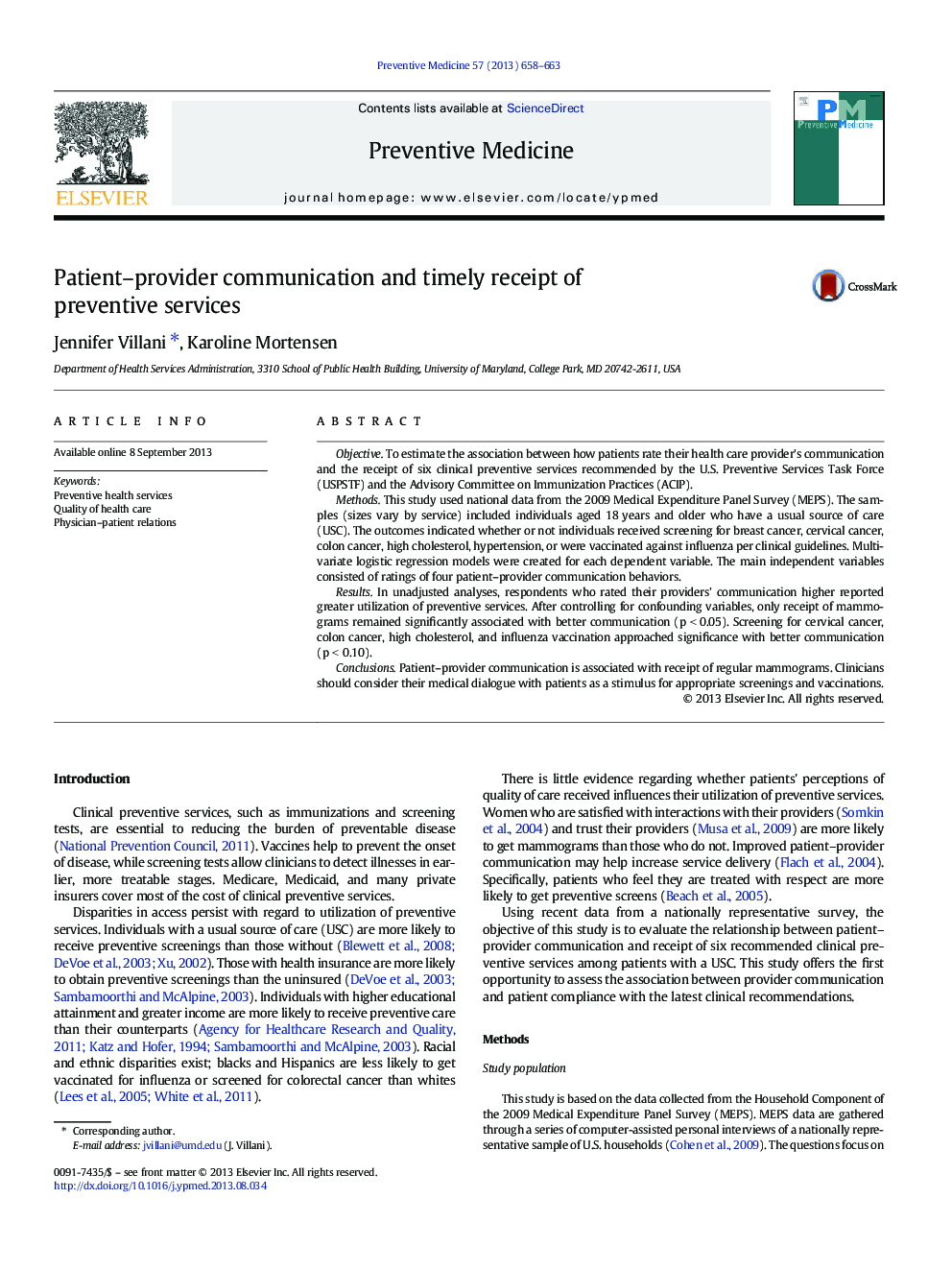| Article ID | Journal | Published Year | Pages | File Type |
|---|---|---|---|---|
| 6047534 | Preventive Medicine | 2013 | 6 Pages |
â¢Providers who encourage patient participation facilitate receipt of preventive care.â¢Women are more likely to get mammograms if providers seek their help with decisions.â¢Patients who perceive better provider communication may follow preventive advice.
ObjectiveTo estimate the association between how patients rate their health care provider's communication and the receipt of six clinical preventive services recommended by the U.S. Preventive Services Task Force (USPSTF) and the Advisory Committee on Immunization Practices (ACIP).MethodsThis study used national data from the 2009 Medical Expenditure Panel Survey (MEPS). The samples (sizes vary by service) included individuals aged 18 years and older who have a usual source of care (USC). The outcomes indicated whether or not individuals received screening for breast cancer, cervical cancer, colon cancer, high cholesterol, hypertension, or were vaccinated against influenza per clinical guidelines. Multivariate logistic regression models were created for each dependent variable. The main independent variables consisted of ratings of four patient-provider communication behaviors.ResultsIn unadjusted analyses, respondents who rated their providers' communication higher reported greater utilization of preventive services. After controlling for confounding variables, only receipt of mammograms remained significantly associated with better communication (p < 0.05). Screening for cervical cancer, colon cancer, high cholesterol, and influenza vaccination approached significance with better communication (p < 0.10).ConclusionsPatient-provider communication is associated with receipt of regular mammograms. Clinicians should consider their medical dialogue with patients as a stimulus for appropriate screenings and vaccinations.
